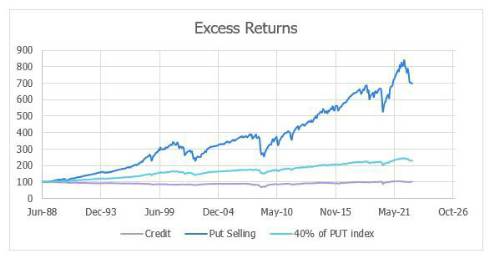By Alex White, Head of ALM Research at Redington
Expanding on this, suppose a scheme has leverage in its LDI portfolio, the collateral and liquidity rebalancing requirements (the unexpected cashflows) can be 20-30% of scheme assets, dwarfing the typical c.5% of scheme assets attributed to pension payments.
Even if a scheme holds only long-duration gilts with no leverage and corporate bonds, it’s still likely to need to rebalance, and other aspects, such as FX hedges, would still require cashflows. If a scheme invested 50% of its assets in corporate bonds, half of which were non-GBP denominated, then a 10% move in FX rates would create an unexpected cashflow need about as large as that of expected cashflows. FX rates such as GBP-USD typically have volatilities of around 10%, so this isn’t a particularly extreme move – we’ve seen larger moves on single days, such as the day of the Brexit vote.
Still, a scheme could solve both issues by only investing in unlevered gilts and UK corporate bonds (and it would have to be prepared not to rebalance if, say, a large move in rates changed the portfolio from 50-50 gilts-corporates to 30-70). What would that entail?
The big risk there is contagion. The UK investment grade market is around £400 billion (ML UC0S index). The combined UK DB scheme liability value was around £1.5 trillion as of March 2022 (The Purple Book, PPF) – this will be smaller now, but still over £1 trillion. That means if UK DB schemes were to invest with more concentration in UK corporate bonds, they could make up the entire market. In such a world, contagion risk would be huge, and any exogenous factor affecting either UK DB schemes or UK corporate bonds could be catastrophic. Moreover, if the UK corporate bond market were to crash, UK DB sponsors wouldn’t be able to raise sufficient cash to support the schemes. So it’s better from a systemic risk perspective if UK DB assets are more diversified.
One way to do this would be to consider alternatives to credit with similar risk profiles. One perhaps less obvious choice could be selling put options. Like bonds, in most cases, put option writers receive a small, predictable premium in return for taking heavy losses in an extreme downside event. But put options have two considerable advantages:
• By selling puts on diversified global markets, schemes can avoid the UK contagion risk.
• Past performance has been far better than bonds. Comparing excess returns on a 40% holding in the S&P Put index (scaled down to roughly the same risk) with those from US corporate bonds (the ML C0A0 index), the put index returned 2.4% p.a. with a 4.0% volatility and a healthy Sharpe ratio of 0.6, while US corporate bonds have had an excess return of 0.03% p.a., with 4.4% volatility and a Sharpe ratio of 0.0.
I’m not advocating that pension schemes build their portfolios by selling put options – in general, I think they should hold diversified portfolios, and there are secondary advantages to corporate bonds, such as tracking buyout prices. My challenge to any scheme investing heavily in corporate bonds, however, is would you be comfortable having a similar exposure to short put options? If not, it may be worth considering employing a little more diversification in your portfolio.

|


